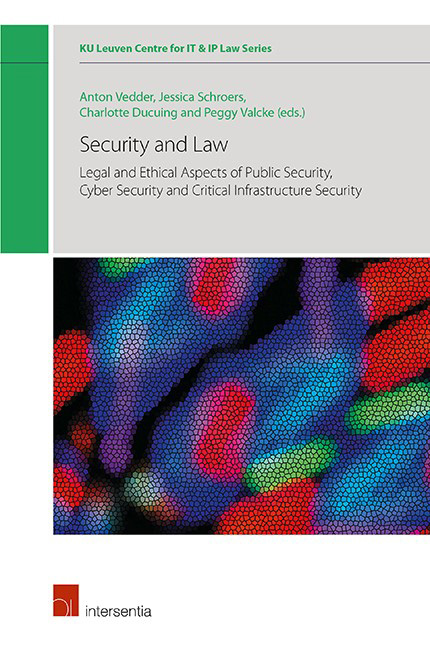 Security and Law
Security and Law Published online by Cambridge University Press: 23 January 2020
Few people would doubt the importance of security of a state, society, its organizations and institutions, and individuals as an unconditional basis for personal and societal flourishing. Equally few people would deny being concerned by the oft en-occurring conflicts between security and other values and fundamental freedoms and rights, such as individual autonomy or privacy to name but a few. While the search for a balance between these public values is far from new, ICT and data-driven technologies have undoubtedly given it a new impulse. These technologies have a complicated and multifarious relationship with security.
Based on their knowledge discovery capacity – e.g. in the form of big data analysis – they are powerful tools in the hands of public authorities in charge of public and national security. In other words, they can have an instrumental function to security. Protection of citizens and individuals from abuses committed by public authorities having a monopoly of legitimate violence is far from new and has been a major task of the law, especially at national and EU levels. By significantly reinforcing the security public authorities, these new technologies may affect the balance of power to the detriment of citizens in many ways. There is a need for reconsidering the balance between the pursuit of public and national security, on the one hand, and the legitimate interests and fundamental rights of citizens, on the other.
Moreover, these new technologies have pervaded our daily environment to the point that they have become critical to the functioning of the economy and of society at large. Against this background, they themselves are increasingly perceived as requiring security, for example when they lie at the core of essential societal services such as healthcare, energy, education or mobility. Safeguarding the security of ICT and data-driven technologies is, however, a challenging endeavour. Amongst others, one has to deal with their inherent connectedness, which makes them liable to the ‘least secured link of the chain’ risk. The anonymity and global scale of the internet multiplies their risk exposure. Furthermore, while security is pursued to the benefit of all, who is or should be made responsible for achieving it remains a highly debated question.
To save this book to your Kindle, first ensure [email protected] is added to your Approved Personal Document E-mail List under your Personal Document Settings on the Manage Your Content and Devices page of your Amazon account. Then enter the ‘name’ part of your Kindle email address below. Find out more about saving to your Kindle.
Note you can select to save to either the @free.kindle.com or @kindle.com variations. ‘@free.kindle.com’ emails are free but can only be saved to your device when it is connected to wi-fi. ‘@kindle.com’ emails can be delivered even when you are not connected to wi-fi, but note that service fees apply.
Find out more about the Kindle Personal Document Service.
To save content items to your account, please confirm that you agree to abide by our usage policies. If this is the first time you use this feature, you will be asked to authorise Cambridge Core to connect with your account. Find out more about saving content to Dropbox.
To save content items to your account, please confirm that you agree to abide by our usage policies. If this is the first time you use this feature, you will be asked to authorise Cambridge Core to connect with your account. Find out more about saving content to Google Drive.